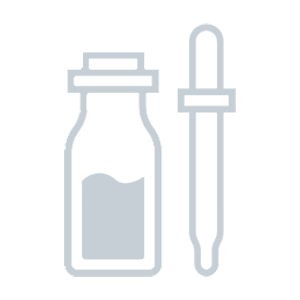Comparison between Cetaphil Dermacontrol Oil Control Moisturizer SPF 30 vs. PLUM Green Tea Renewed Clarity Night Gel
- 30 components -
- 16 components -
Find out which product is better for your skin.
Ingredients in both products 2
Components only in Cetaphil Dermacontrol Oil Control Moisturizer SPF 30 28
Octocrylene, Ethylhexyl Salicylate, Avobenzone, Isopropyl Lauroyl Sarcosinate, Glycerin and 23 more. Show all.
Uniqueness: 93.3%
Components only in PLUM Green Tea Renewed Clarity Night Gel 14
Aloe Barbadensis (Aloe Vera) Leaf Juice, Ammonium Acryloyldimethyltaurate/vp Copolymer, Argania Spinosa (Argan) Kernel Oil, Betaine, Camellia Sinensis (Green Tea) Leaf Extract and 9 more. Show all.
Uniqueness: 87.5%
Face to Face
Components position by position
1
Octocrylene
1
Water
2
Ethylhexyl Salicylate
2
Aloe Barbadensis (Aloe Vera) Leaf Juice
3
Avobenzone
3
Ammonium Acryloyldimethyltaurate/vp Copolymer
4
Water
4
Argania Spinosa (Argan) Kernel Oil
5
Isopropyl Lauroyl Sarcosinate
5
Betaine
6
Glycerin
6
Camellia Sinensis (Green Tea) Leaf Extract
7
Diisopropyl Sebacate
7
Fragrance
8
Aluminum Starch Octenylsuccinate
8
FD&C Yellow 5 (Ci 19140)
Show others
Positive Effects
Find out what good effects the product has
Both products provide the following effects: Antioxidant, UV Protection, Moisturizing, Softening, Soothing, Healing, Antifungal, Antiseptic, Regeneration, Protection, Hair conditioning, Hair structure improvement, Hair gloss, Hair protection
Effects unique for Dermacontrol Oil Control Moisturizer SPF 30:
Pore Shrinking, NutrifyingEffects unique for Green Tea Renewed Clarity Night Gel:
Cleansing, Acne fighting, Anti-aging, Lightening, Elasticity improvement, Rejuvenation, Deodorant, Anticellulite, Antiviral, Tones up skin, Anti dandruff, Hair strengthening-- Show more --
ECO Metrics
Find out how eco-friendly the components are
Vegan
No
No
Cruelty free
No
No
Reef safe
Yes
Yes
Ozone layer safe
Yes
Yes
Organic score
natural
5 out of 30
17%
chemical
22 out of 30
73%
natural
9 out of 16
56%
chemical
3 out of 16
19%
Concerns
Pay attention to this information
-- Extra information --
Components by Skin Type
Find out what components are good or bad for your skin type
Dry skin
Positive: 3Negative: 0
Glycerin#6Allantoin#24Panthenol#26
Oily skin
Positive: 1Negative: 0
Allantoin#24
Sensitive skin
Positive: 1Negative: 0
Allantoin#24
Dry skin
Positive: 1Negative: 0
Betaine#5
Oily skin
Positive: 2Negative: 0
Camellia Sinensis (Green Tea) Leaf Extract#6Glycolic Acid#10
Sensitive skin
Positive: 0Negative: 1
Glycolic Acid#10

